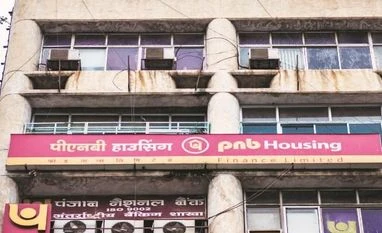The Securities Appellate Tribunal (SAT) has allowed PNB Housing Finance to go ahead with its scheduled extraordinary general meeting (EGM), scheduled for Tuesday.
The mortgage lender has been even allowed to carry out voting on the controversial resolution pertaining to the infusion of Rs 4,000 crore to an investor group led by Carlyle on a preferential basis.
The tribunal, however, has directed PNB Housing to not disclose the voting result on the resolution until further directions.
SAT has also asked the company to tell NSDL to not declare the voting pattern and it should be kept in a sealed cover till further orders.
The matter will come up for hearing next on July 5, when the tribunal will decide whether a valuation report from a registered valuer is required to be done.
PNB Housing has argued that under Section 62(1)(c) of the Companies Act, a provision has been made for valuation through a registered valuer but under Rule 13 of the Companies (Share Capital and Debentures) Rules, 2014, this requirement has been dispensed with in a case where a preferential allotment of shares is being issued by a listed company.
SAT has directed the Securities and Exchange Board of India (Sebi) to file a reply by June 26 and rejoinder, if any, by July 4.
Last week, PNB Housing said it had received a letter from Sebi, asking the company to not go ahead with the preferential allotment until it did a valuation of its shares by an independent valuer.
PNB Housing Finance has appealed Sebi’s directive before SAT. The company in a statement has said that it has complied with “all relevant applicable laws, including the applicable pricing regulations prescribed by Sebi, and the Articles of Association of the Company”. It has further said “the preferential allotment is in the best interests of the company, its shareholders and all relevant stakeholders”.
Sources said Sebi’s letter led to ambiguity on whether PNB Housing could go ahead with its EGM. Besides the resolution pertaining to preferential allotment, the company has sought the shareholders’ approval on nine other resolutions passed by its board of directors. Electronic voting on all the resolutions commenced on June 18.
SAT said a stay on voting on any of the resolutions won't be fair as the electronic voting was already underway.
“Sebi never said the EGM should not take place. It said ‘don’t act on the resolution until you meet certain conditions’,” said J N Gupta, managing director of Stakeholders Empowerment Services (SES), which has raised the red flag on the Carlyle deal and has recommended that the shareholders cast the “against” vote.
Shares of PNB Housing hit a 5 per cent lower limit on Monday and closed at Rs 702.4 per share.
“On the face of it, SES finds this deal unfair to public shareholders of the company and shareholders of PNB. As controlling shareholder of the company, PNB has blown away the value. (Currently), PNB Housing is bracketed as a public sector undertaking (PSU) as PNB, a government entity, is the promoter. PSUs historically for millions of reasons get valuations which are quite low compared to private sector peers across all sectors,” SES had said in a note.
PNB Housing’s board has approved a preferential allotment of Rs 3,200 crore worth of shares and Rs 800 crore worth of warrants to Carlyle, Aditya Puri family investment vehicle Salisbury Investments, General Atlantic, and Alpha Investments at Rs 390 apiece.
The transaction will trigger an open offer as Carlyle will replace state-owned PNB as the controlling shareholder of PNB Housing. The open offer to acquire 26 per cent shares from the public will be made at Rs 403 per share.
Following the deal announcement, shares of PNB Housing nearly doubled to Rs 881. The stock has come off amid uncertainty around the deal.
Legal experts said the deal hinged on the fair price discovery by the independent valuer.
“In case the acquisition price recommended by the valuer is higher, the fate of the deal will depend on whether Carlyle and other investors agree to match it,” said a lawyer.
Unlock 30+ premium stories daily hand-picked by our editors, across devices on browser and app.
Pick your 5 favourite companies, get a daily email with all news updates on them.
Full access to our intuitive epaper - clip, save, share articles from any device; newspaper archives from 2006.
Preferential invites to Business Standard events.
Curated newsletters on markets, personal finance, policy & politics, start-ups, technology, and more.
)